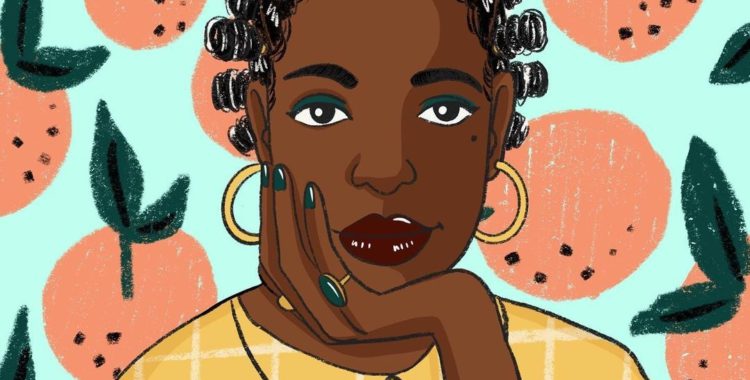
Art by Sharee Miller @coilyandcute
With vaccinations finally underway, we are nearing the moment we’ve been waiting for: life reopening. And many are wondering, after over a year of virtual isolation, what being social will look like. Many of us will be in scenarios at some point that will require us to take our social skills out of hibernation and actually interact with people in real life, face-to-face and not on a Zoom screen. Some, like me, are wondering if their social graces have gotten too dusty and if they’re still capable of fully engaging with people, or… even if they even want to… As an introvert I’ve luxuriated in the solitude of a society of pared down interactions. But surprisingly, I recently found out that not only am I still capable of interacting with actual human beings and will not need a re-entry program, I am experiencing that engagement from a different and more relaxed perspective.
I’ve always wanted to work with a food bank and finally made that happen when I decided to volunteer. As the date approached I was a little anxious, wondering if I’d be good at small talk, something I typically loathe. I wondered what kind of people I’d meet, and frankly, whether or not they’d get on my nerves. I also considered if I’d get on theirs. Would I ask too many questions? (I like clarity.) Would I be able to do my work quickly enough?…the list swirled around in my head like incense smoke wafting in the air…
Some of my fears stemmed from bad experiences with people in the workplace, a setting I think is generally dysfunctional and unhealthy, particularly for people of color. But I put it aside and made the half hour trek out to package up food for communities.
When I got there I was directed to the volunteer waiting area and found a seat at a table where one man was sitting. We greeted each other and waited for the overview to begin. I noticed that I wasn’t as impatient. I was able to relax and let things flow. After a brief orientation we went into the warehouse. I was assigned my duty, to tape up the boxes of food.
The gentleman I’d sat with introduced himself and assured me everything would be fine. I thought he was really nice and appreciated his initiative with the introduction. I liked that I didn’t have to take the lead in any way or even feel the need to. In reflection, I think the underlying feeling was not having to do anything to make others feel comfortable like introducing myself or being overly friendly. These are behaviors many people of color are used to doing to protect themselves in spaces, even if it’s subconscious. That kind of anxiety was no longer present and it was awesome.
The rest of my time went very smoothly. People helped me hold down the boxes while I taped and I didn’t even have to ask. And things I normally would have found annoying didn’t bother me. One volunteer I worked with felt inclined to shout “Whoo!” to express her excitement about the speed of the assembly line. Ordinarily I would have wanted to muzzle her. But her whooping went in one ear and out the other. I was still able to enjoy her company and be patient when she’d repeatedly attempt to close the box before all the contents were inside. I was able to tell her over and over again, “It’s ok” when she apologized. I thought, What has happened to me?
I think this extended period of isolation really helped me slow down, calm down. Not having the usual stressors that can come with constant human interaction has allowed me to detach and even appreciate people differently. Being removed from regular life has helped me at least subconsciously reevaluate how I choose to interact with and react to people. The anxiety I had around people and their behaviors and responses and even microaggressions has dissipated. This shift existed in me prior to my volunteer experience as I’ve noticed it in other scenarios, but a more prolonged in-person interaction has allowed me to notice the transformation more significantly. I hope the peace I’ve developed remains, because folks can be a handful and keeping our peace can be a struggle.
For more on the anxieties around returning “back to normal”, check out a piece that came out this month on NPR, “Do We Even Know How To Socialize Anymore?”
Don’t worry, you’re not the only one thinking about what “getting back to normal” is going to feel like.
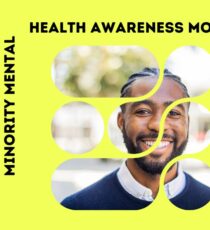
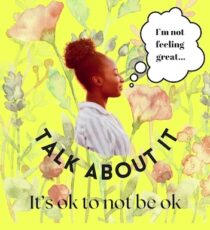

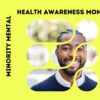
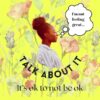

Social Menu